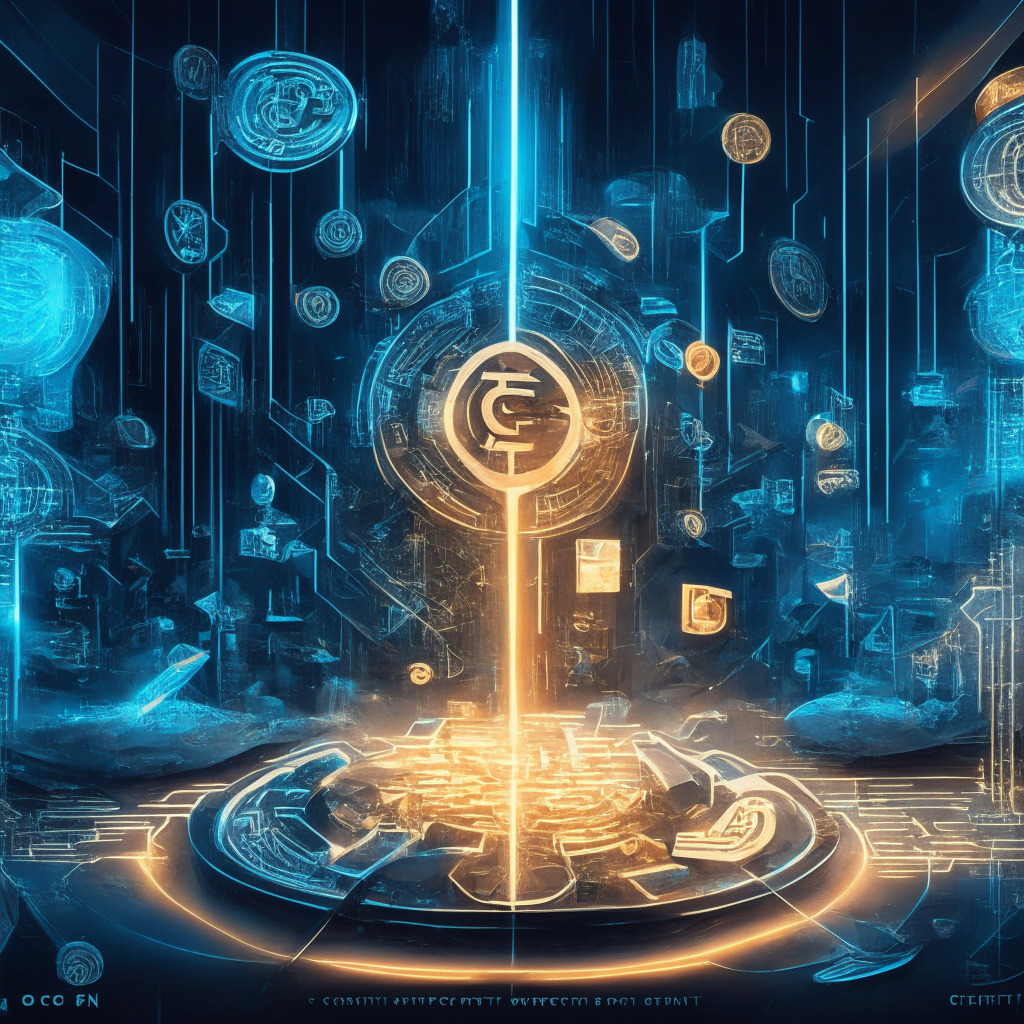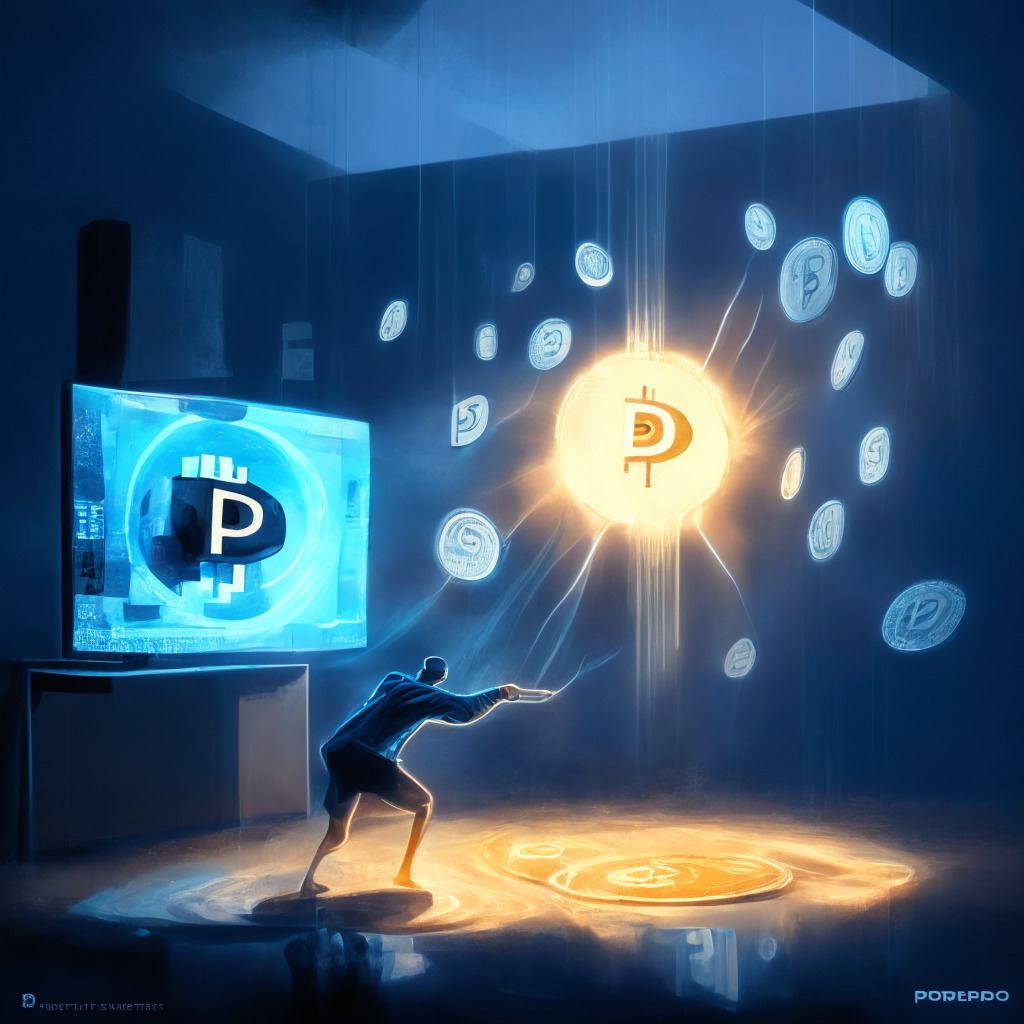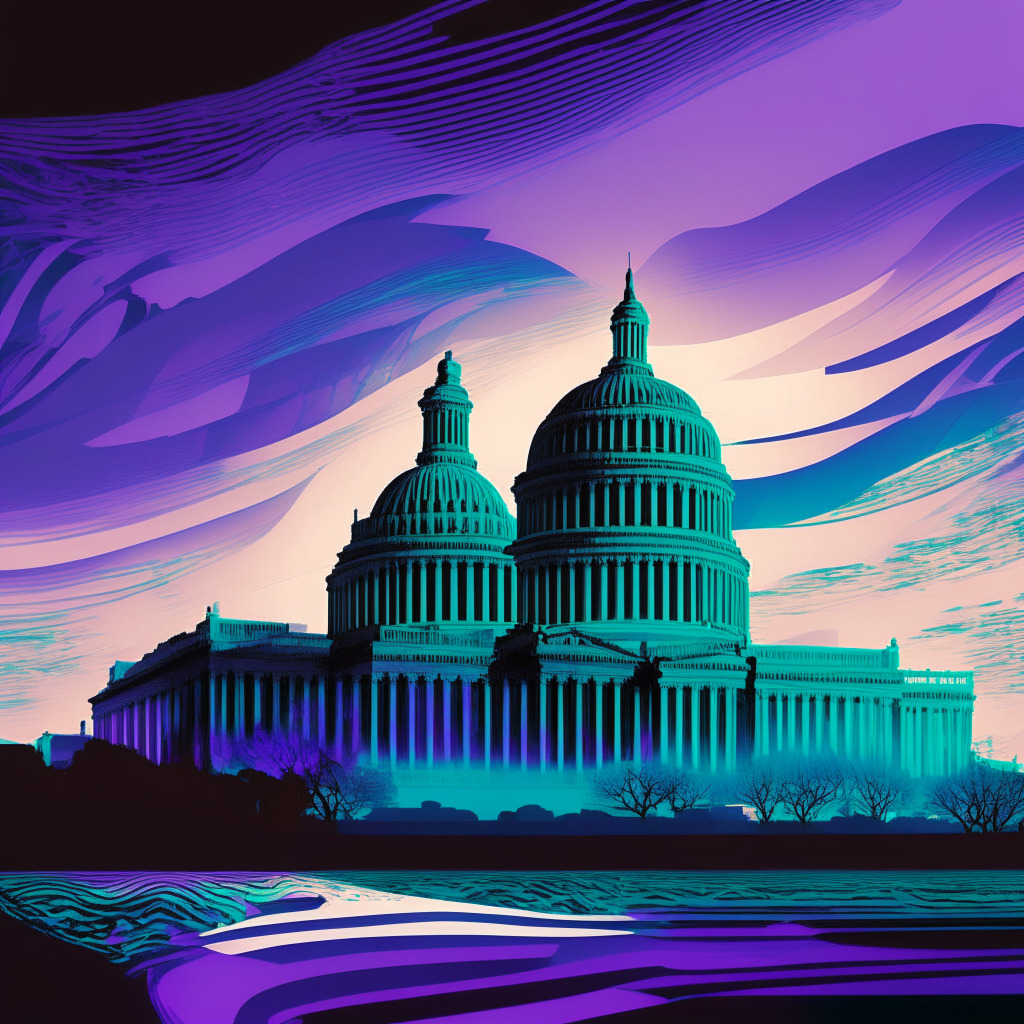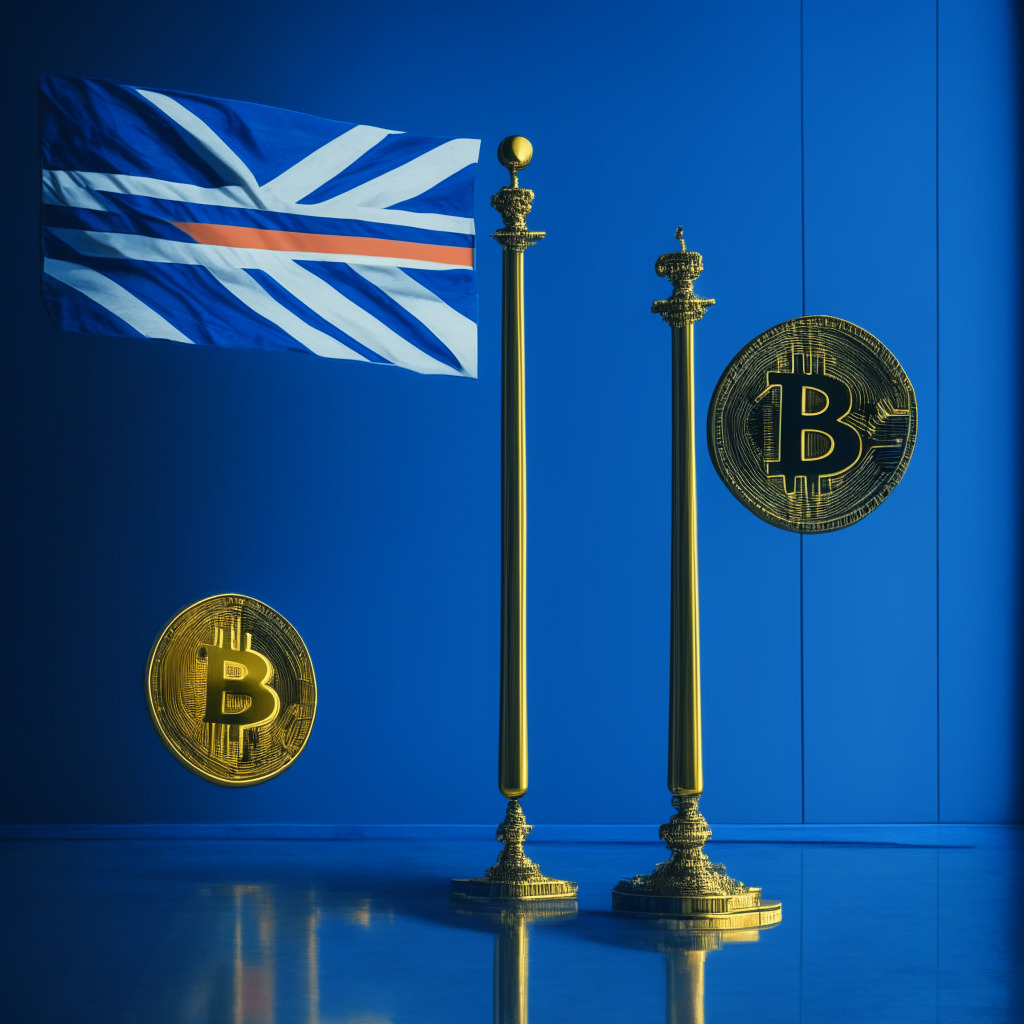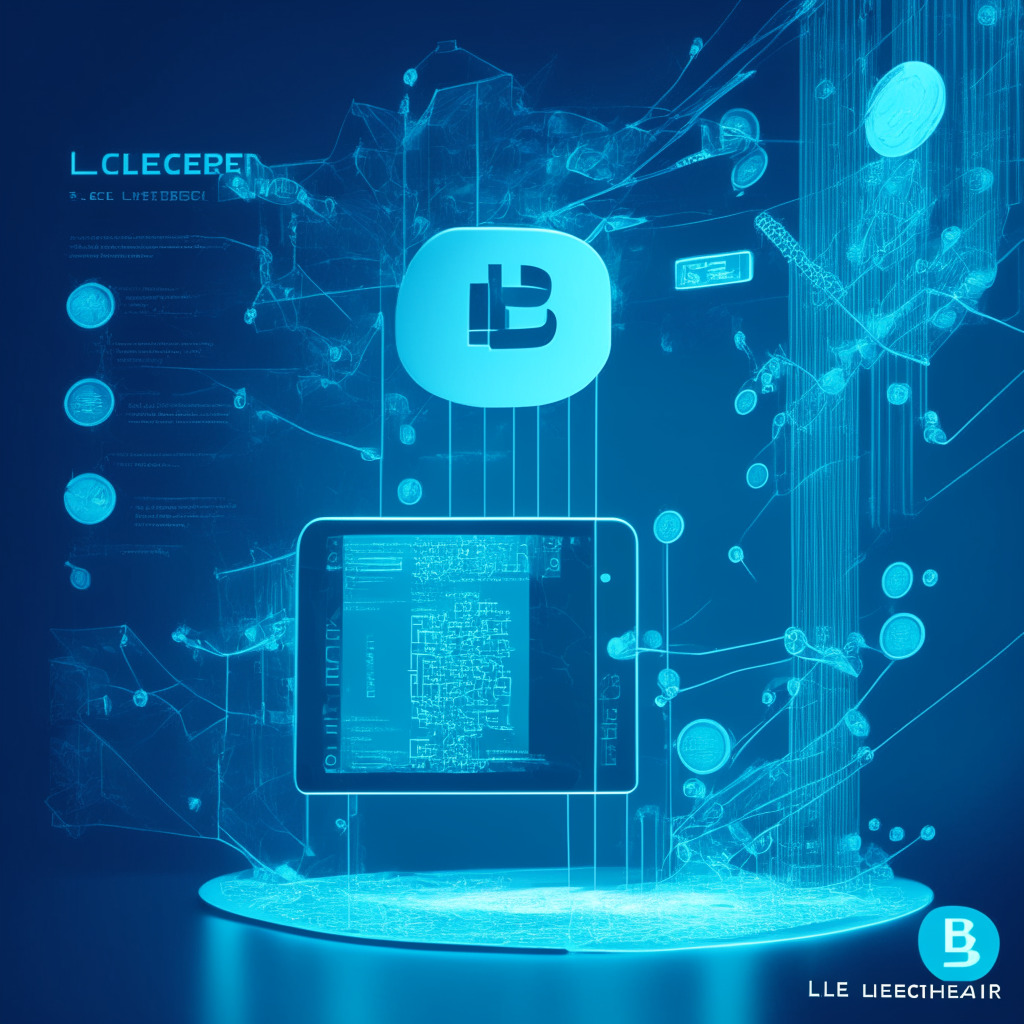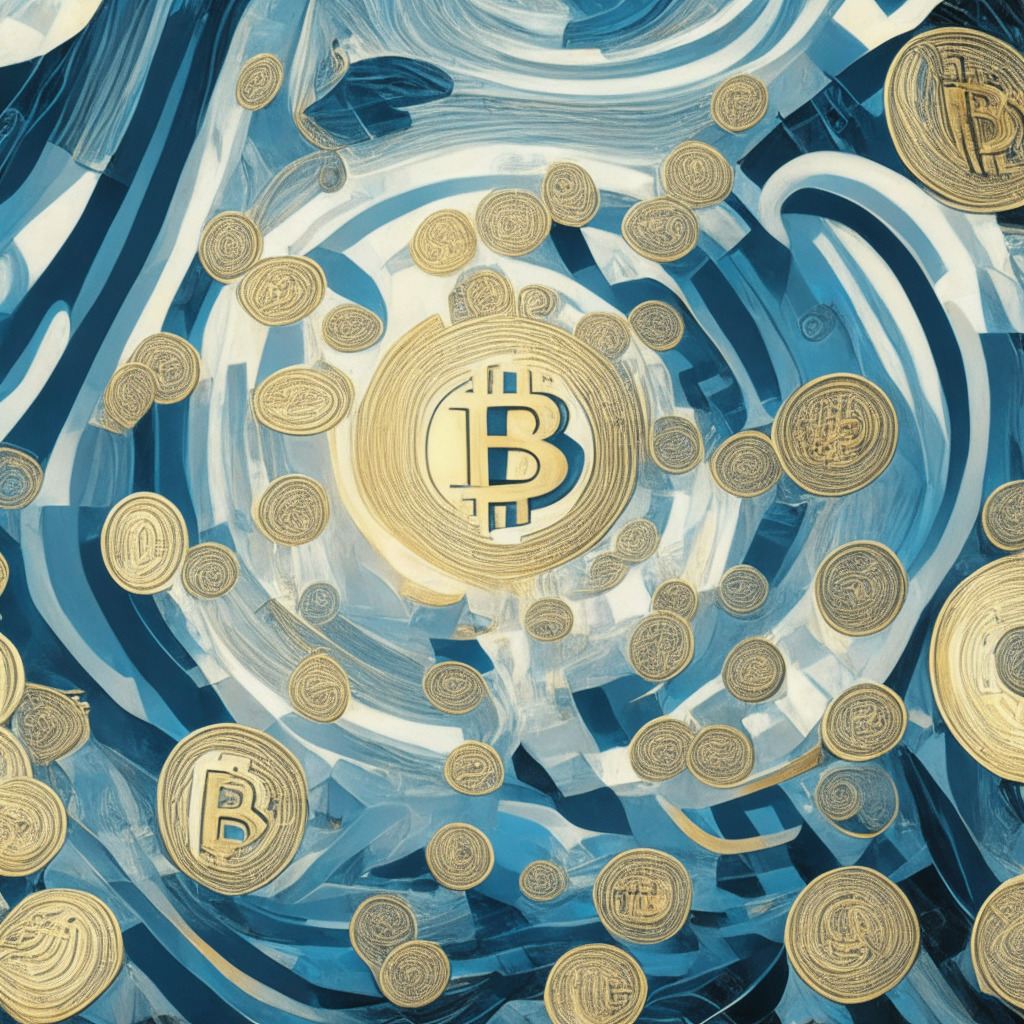Tether co-founder, William Quigley, in a recent interview expressed skepticism towards the acceptance of PayPal’s impending stablecoin. Highlighting that cryptocurrencies earn credibility over time, he outlined that new entrant, PayPal, would face challenges in gaining trust and performance reputation among crypto users. He flagged significant regulatory challenges and the high cost of compliance as potential hurdles for PayPal’s stablecoin.
Search Results for: paypal
PayPal and the NFT Market: Innovative Strides or Potential Disaster?
“PayPal has lodged an application for an NFT marketplace patent, hinting at a system facilitating the transfer and purchase of NFTs. However, the volatility of NFTs and regulatory gray areas surrounding digital assets pose potential risks and challenges.”
PayPal’s Expanding Crypto Vision: A Rising Star or Shadow on Decentralization?
“PayPal is deepening its alignment with the crypto ecosystem, recently filing patents to expand various sectors within cryptocurrency. Developments include plans for steering blockchain requests to specific miners, enabling off-chain transactions in NFT marketplaces, and introducing a cross-metaverse ‘omniverse’ that tailors digital asset recommendations. Critics question potential centralization while supporters anticipate increased accessibility.”
PayPal’s NFT Venture: A Bold Leap into Blockchain or a Risk to Decentralization?
“PayPal’s recent patent application for a non-fungible token (NFT) purchase and transfer system boldy underscores the mainstream acceptance of blockchain technology. The filing suggests designs to leverage NFTs for tokenization, far beyond digital collectibles. However, it also proposes off-chain transactions potentially diverging from the philosophy of complete decentralization that attracted enthusiasts to blockchain technology.”
PayPal’s Integration with Crypto.com: Pioneer Move or Futile Endeavor?
The cryptocurrency exchange Crypto.com and financial powerhouse PayPal have partnered, with Crypto.com becoming an exchange of choice for PayPal’s stablecoin, PYUSD. By facilitating PYUSD trading pairs, Crypto.com aims to connect over 80 million users to new crypto innovations while supporting PayPal’s extensive network.
Unraveling PayPal’s Plan: Crypto.com, Stablecoin and the Future of Cryptocurrency Markets
“PayPal has plans to make Crypto.com the preferred platform for their USD-backed stablecoin, PYUSD. Despite skepticism around adoption and seamless trade, this move could mark a significant stride towards widespread crypto adoption in traditional finance.”
PayPal’s Venmo and the Stalled Adoption of PYUSD Stablecoin: Analysis and Future Implications
“PayPal’s mobile payment platform, Venmo, has begun offering its Ethereum-based stablecoin, PYUSD, marking a significant step toward integrating cryptocurrency with mainstream finance. Despite its robust structure and support, PYUSD’s adoption has been slow, likely due to competition and regulatory contradictions.”
PayPal’s Entry into Stablecoin Could Disrupt Financial Markets: Quigley’s Forecast & Scrutiny
Tether co-founder William Quigley has noted that PayPal’s venture into stablecoin could revolutionize multicurrency transactions by reducing costs. However, whether PayPal will transfer these savings to end users or retain them as profit is yet to be seen.
PayPal and Franklin Templeton Diving Deeper into Crypto: Risks and Rewards Ahead
“PayPal and Franklin Templeton are venturing deeper into the crypto sphere, with PayPal introducing crypto on- and off-ramps, and collaborations like its partnership with MetaMask. Franklin Templeton is seeking Bitcoin ETF approval, reflecting growing mainstream acceptance of digital assets.”
Is PayPal’s Ethereum-based Stablecoin, PYUSD, Truly 100% Asset-Backed? Examining the Claims
“PayPal’s Ethereum-based stablecoin, PYUSD, has full asset backing, primarily from U.S. Treasury reverse repurchase agreements, says Paxos. Though overcollateralization safeguards assets, it could limit profits. Some PYUSD assets are in uninsured cash deposits, reflecting typical banking risks. PYUSD’s transparent operation may soothe some investors while raising others’ skepticism.”
PayPal’s Crypto Integration and Binance’s Noble Deed: A Deep Dive into Pros, Cons & Verifiable Progress
“PayPal’s new feature allows U.S. users to convert cryptocurrencies to USD. However, this poses questions due to transaction costs, potential incompatibility with MetaMask, and Bitcoin transactions. Meanwhile, Binance’s generous disaster relief pledge raises issues regarding beneficiary verification.”
PayPal’s PYUSD Stablecoin: Shining Beacon or Misstep in Crypto Space?
“PayPal’s proprietary stablecoin, PYUSD, is criticized due to concerns over centralization and potential vulnerability flaws. Its code could pose adoption hindrances and potentially wipe out balances. The crypto community sees PYUSD as a setback, contrasting the ethos of cryptocurrency.”
PayPal Broadens Crypto Horizons: USD Conversion Service Unveiled. Strides or Stumbles?
“PayPal has introduced a service allowing users to convert their digital currencies into US dollars. This ‘off-ramp service’ enables cryptocurrency wallet users to transition into USD for various uses. The service extends to decentralized applications and non-fungible token marketplaces. The collaboration with MetaMask plays an important role in this expansion.”
PayPal’s PYUSD Stablecoin: A Turbo Boost or Damp Squib for Crypto Adoption?
PayPal’s recently launched stablecoin, PYUSD, appeared to have a slow start with 90% of it residing in Paxos Trust’s reserves and only 7% on crypto exchange wallets. However, despite the somewhat sluggish kick-off, it’s still early days; a shift in the crypto market could significantly change PYUSD’s future prospects.
PayPal Enters Stablecoin Market: Catalyst for Regulatory Clarity or a Step Away from Decentralization?
“PayPal’s stablecoin, PYUSD, built on the Ethereum network, signals a major step towards crypto adoption in traditional finance. Despite concerns about its centralized structure, PYUSD could clarify crypto regulations, accelerate token usage, consolidate crypto payment with traditional finance, and encourage wider adoption of blockchain technology.”
Bitcoin Slips Amidst Wall Street Woes: PayPal Halts UK Crypto Trades & Jada AI Secures Funding
“The Bitcoin value recently slipped to its lowest since June 21, trading just above $28,346, related to Wall Street’s drop caused by banking apprehensions and interest rate fears. Meanwhile, PayPal suspended crypto purchases in the UK until early 2024 due to new FCA regulations, but continues its crypto push in the US.”
PayPal Halts UK Crypto Purchases amidst BTC Price Instability: Panic or Opportunity?
“PayPal has paused crypto purchases in the UK because of new regulations, creating uncertainty for Bitcoin investors. The temporary halt until early 2024 emphasizes the complexity of the emerging digital asset world, its volatility, and the need for investor caution.”
The Ripple Effect of PayPal’s PYUSD: Potentially Forcing a Shift in Stablecoin Regulation Debate
The launch of PYUSD, a stablecoin backed by PayPal with over 430 million users, may accelerate crypto adoption and prompt a shift in U.S. policy towards crypto regulation. Despite previous hesitations, the massive user base might force lawmakers to urgently develop a comprehensive regulated framework for stablecoins, heralding a new era of American crypto companies demanding inclusion in economic life.
PayPal’s Crypto Halt in the UK: Stricter Regulations vs Freedom of Decentralization
“PayPal has halted cryptocurrency purchases in the UK until early 2024 in response to stricter rules by the Financial Conduct Authority. Stricter regulations might increase security but contradict the decentralization principle of cryptocurrencies. Meanwhile, PayPal launched a stablecoin, PYUSD, evidencing the balance between regulation and innovation in the crypto world.”
Seamless Crypto Transactions: Ledger Live Integrates PayPal to its Platform
Hardware wallet producer Ledger has integrated its Ledger Live software with PayPal to allow US-based PayPal account holders to acquire digital assets directly. This new feature enables immediate transfer of cryptocurrencies such as Bitcoin, Ether, Bitcoin Cash, and Litecoin to the user’s wallet, eliminating the need for a separate withdrawal process. This integration aims to simplify crypto transactions while ensuring high security.
Radical Pause: PayPal’s Crypto Sales Freeze in the UK Amid Stricter FCA Regulations
“PayPal announced a temporary halt of cryptocurrency purchasing services in the UK due to new rules set by the UK Financial Conduct Authority for advertising cryptoassets. This comes amidst a surge in UK crypto ownership, placing firms under increased responsibility to ensure investors’ knowledge and experience with crypto investments.”
Navigating Uncharted Waters: PayPal’s Foray into Stablecoin with PYUSD
“PayPal is venturing into cryptocurrencies with its own stablecoin, PayPal USD (PYUSD), which aims to reduce volatility. Despite competing with established stablecoins in a volatile market, PYUSD’s compatibility with future Web3 applications and PayPal’s reputation could grant legitimacy to the crypto industry.”
Navigating PayPal’s Cryptocurrencies Hub – Leaping Forward or Wading in Uncertain Waters?
“PayPal has introduced Cryptocurrencies Hub, enabling users to transact with cryptocurrencies like Bitcoin. Despite the intended convenience, there are concerns over asset control, stringent account verification, potential data breaches, and lack of regulatory compliance in PayPal’s upcoming PYUSD stablecoin launch.”
PayPal’s Cryptocurrency Hub: A Revolution or a Stir in Digital Asset Management?
“PayPal is introducing a Cryptocurrencies Hub, allowing users to buy, sell and pay with digital assets like Bitcoin. However, not all users will have access and while the hub represents ownership, it won’t confer actual possession of the digital assets.”
Crypto World Crucible: Regulatory Scrutiny, PayPal’s Stablecoin, and Lawsuit Shockwaves
“Last week in crypto: Bail of former FTX CEO revoked due to alleged witness intimidation, U.S. SEC delays Bitcoin ETF decision and plans Ripple Labs lawsuit appeal. PayPal reveals Ethereum-based stablecoin, but gains mixed market sentiments.”
Navigating the Regulatory Maze: Kyle Davies, PayPal and the Evolving Crypto Landscape
“Co-founder of Three Arrows Capital, Kyle Davies, avoided contempt charges in US Bankruptcy Court due to Singaporean citizenship. This development could impact the recovery efforts of liquidators seeking $1.3 billion from Davies. Meanwhile, PayPal’s new stablecoin PYUSD faces potential regulatory challenges, signaling a pivotal role of regulation in the future of cryptocurrencies.”
Unveiling PayPal’s Stablecoin: Impact on Ethereum, Crypto Centralization & The Rise of Chatbot Trading
“PayPal has launched its stablecoin PayPal USD (PYUSD), stirring a debate on potential implications and risks. As PayPal explores the stablecoin space, Bitstamp seeks global expansion, and Coinbase launched its Base layer-2 network. Meanwhile, Telegram bot crypto trading popularity is on the rise.”
PayPal’s PYUSD vs Major Stablecoins: A Battle for Market Share or a Losing Game?
“Bank of America suggests PayPal’s stablecoin, PYUSD, may struggle in the face of established competitors like USD Tether (USDT) and USD Coin (USDC). Factors such as lack of fresh functionality and wallet compatibility issues could impede its progress. However, PYUSD has potential to enhance customer experience within the PayPal ecosystem and capitalize on blockchain-enabled asset transfers, payments, and remittance services.”
Unleashing Stablecoins: Assessing PayPal’s PYUSD Launch Amid Political Divides and Regulatory Turbulence
“PayPal’s recent launch of its stablecoin, PYUSD, under the regulatory framework of the New York Department of Financial Services has stirred conversations about stablecoin adoption. Unlike Meta’s unsuccessful Libra, PayPal’s project is viewed more favorably politically, indicating an imminent regulatory framework for stablecoins in the U.S.”
PayPal’s New Stablecoin PYUSD: Exploring its Potential and Uncertainties
“PayPal’s recently unveiled stablecoin, PYUSD, is predicted to enhance payment efficiency. Despite optimism, reception may vary due to competition from central bank digital currencies and yield-bearing stablecoins. Current investors appear unbothered by the lack of yield and focus on safety and availability.”
PayPal’s New Stablecoin vs DEX-Launched Meme Coins: A Tale of Crypto Hype and Caution
“The recent announcement by PayPal about its new stablecoin brought skepticism due to the controversial freeze function in the contract. Amidst this, PYUSDF and Wall Street Memes emerged, representing divergent prospects in the digital currency market. Remain cautious, digital currencies are high-risk assets.”
Navigating the Cryptoregulatory Waters: PayPal’s Launch of PYUSD Sparks Debate
“PayPal’s launch of its own stablecoin, PYUSD, brings the pressing issue of cryptocurrency regulation into focus. As cryptocurrencies integrate into mainstream financial services, there’s growing consensus on the need for a well-defined regulatory framework that can oversee these innovations while ensuring consumer protection and financial system integrity.”




